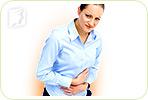Menopausal fatigue is one of the most common symptoms of menopause, affecting up to 80% of women. The condition is characterized by a state of constant overtiredness that does not always disappear even with sleep or rest, and any kind of physical exertion can be daunting and leave the sufferer feeling exhausted. Fortunately, although it is a common symptom, it does not have to be an inevitable part of menopause. Read on to discover more about the symptoms of menopausal fatigue and how to stop it.
Symptoms of Fatigue
There are a wide range of symptoms that a woman could experience when suffering from menopausal fatigue, and these can be both physiological and psychological in nature. Not every sufferer will experience all of the symptoms associated with menopausal fatigue, but there are some common ones that many women might recognize:
- Muscle pain
- Headaches
- Poor concentration
- “Brain fog” - trouble thinking clearly
- Insomnia
- Depression
- Sensitivity to light
- Stomach pain
- Memory lapses
- Depression
How to Stop Menopausal Fatigue
Menopausal fatigue can be caused by a range of factors - hormonal imbalance, unhealthy diet, and the sedentary lifestyles that become more common in women as they get older, to name a few. The following tips focus on correcting these contributors, and many women find that these self-help tips are normally sufficient to completely rid themselves of menopausal fatigue.
Regulate Hormones
There are alternative treatments for fatigue. For example, herbal supplements are consider the best treatment to follow, they address hormonal imbalance that trigger fatigue. There are two types of supplements for treating fatigue: phytoestrogenic and hormone-regulating supplements.
Phytoestrogenic can help treat hormonal imbalance by introducing external hormones into the body. On the other hand, hormone-regulating supplements boost endocrine glands, which promotes natural hormone production.
Eat protein
During menopause, muscle mass naturally decreases, so it is important to eat foods that will help build muscle strength in order to avoid the tiredness that can follow slight muscle exertion. The amino acids that make up protein play a chief role in increasing muscle mass, so a diet rich in protein should reduce menopausal fatigue dramatically. Eggs are one of the best sources of protein, but other sources are milk, poultry, tofu, and pistachios.
Exercise
This is a long-term preventative strategy, but also one of the best tools in the fight against menopausal fatigue. It is unlikely to happen when you are caught in the grips of an episode, so it is important to make the most of the more energetic periods. However, overexertion will have a counter effect and actually make fatigue worse.
Build exercise gradually into your life, starting with a few minutes a day and slowly increasing time and intensity. The adrenaline and endorphins will naturally boost energy, and also help you avoid negative thought processes, which can increase the psychological feeling of tiredness. Ultimately, you want to aim for at least 30 minutes a day. To make this sustainable, finding an exercise you enjoy is imperative, so try out different things until you have found your exercise.
Sleep well
Stress, anxiety, and sedentary lifestyle all contribute to insomnia, which can cause or worsen menopausal fatigue. The body needs to sleep for around eight hours every night in order to feel refreshed, and the quality of sleep is important also. A regular exercise regime should reduce feelings of stress and anxiety, and also help the body feel ready for sleep at bedtime. Other ways to promote refreshing sleep are having a regular bedtime routine and keeping your bedroom cool, dark, and quiet.
Many women feel that menopausal fatigue is a natural part of menopause and therefore they just have to bear it. However, this is not the case; menopausal fatigue often arises from highly controllable factors, so stopping it can be as simple as making a few lifestyle alterations.
Sources
- BBC Good Food. (n.d.). Best sources of protein. Retrieved September 26, 2014, from http://www.bbcgoodfood.com/howto/guide/best-sources-protein
- Love, S. & Lindsey, K. (2003). Dr. Susan Love's Menopause & Hormone Book. New York: Three Rivers Press.
- National Health Service UK. (2013). Chronic fatigue syndrome - Symptoms. Retrieved on September 26, 2014, from http://www.nhs.uk/Conditions/Chronic-fatigue-syndrome/Pages/Symptoms.aspx
- National Health Service UK. (2013). Self-help tips to fight fatigue. Retrieved September 26, 2014, from http://www.nhs.uk/Livewell/tiredness-and-fatigue/Pages/self-help-energy-tips.aspx
- National Health Service UK. (2012). Stress: Causes of Stress. Retrieved on September 26, 2014, from http://www.nhsinform.com/health-library/articles/s/stress/causes
- National Health Service UK. (2012). Stress: Symptoms of Stress. Retrieved on September 26, 2014, from http://www.nhsinform.com/health-library/articles/s/stress/symptoms




